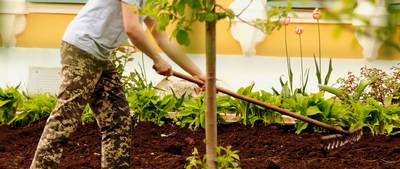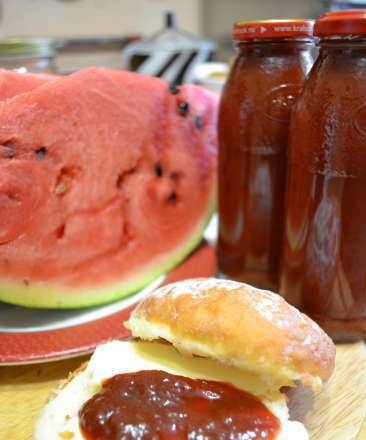|
 The traditional principles of farming are to dig up, apply mineral fertilizers, sow, regularly water, weed, fertilize again. Also, if necessary, you need to treat with herbicides, pesticides. All this is a complex and resource-intensive set of activities. In addition, it is unproductive: from year to year the soil is depleted, the plants begin to ache and the yield decreases. The traditional principles of farming are to dig up, apply mineral fertilizers, sow, regularly water, weed, fertilize again. Also, if necessary, you need to treat with herbicides, pesticides. All this is a complex and resource-intensive set of activities. In addition, it is unproductive: from year to year the soil is depleted, the plants begin to ache and the yield decreases.
One of the reasons for this is the wrong attitude to the soil as to a neutral carrier from which plants take water, macro- and microelements. Soil scientists, agricultural technicians and simple gardeners have proven that this is not the case. Soil is a living symbiotic organism.
Forum about garden and vegetable garden
Remember: we taught chemistry at school? Organic and inorganic. And the teachers explained that organic chemistry is the chemistry of living things. Therefore, organic farming is a set of activities aimed at preserving and maintaining life in the soil. If you are ready to change your attitude towards the land and give it the opportunity to feed you for many years, then here are the basic principles of this method of farming:
Don't dig! We all know that plants need light soil, the roots must breathe. However, digging up the soil, we disrupt its ecosystem. Soil bacteria are divided into aerobic (they need oxygen for their life and they live closer to the surface) and anaerobic (oxygen is destructive for them and they live deeper in the earth). Digging up our garden in the spring, we turn over the layers of soil and as a result aerobes find themselves below and there "suffocate" from the lack of air, and anaerobes die from contact with oxygen.
After 3 years of such manipulations, the soil in the garden becomes completely lifeless. In accordance with the principles of organic farming, it is enough to loosen the soil to a depth of 5 centimeters, for this you do not need a shovel, a hoe or a flat cutter is enough.
Don't remove the sod! Many gardeners, having bought a plot that has not been cultivated for a long time, remove the top layer of soil, thereby depriving themselves of the most fertile layer of soil. If there is virgin soil on your plot, dig it up with a cultivator in the fall and sow rye, it will compete with wild grasses. In the spring, walk again with a cultivator, so you get a good fertilized soil.
 Don't leave the ground open! The bare ground is easily sown with weeds, making life difficult for the gardener. In addition, it easily loses moisture, overheats in the heat and, conversely, freezes in the event of an unexpected cold snap. To preserve it, use mulch: organic (straw, bark, semi-prepared compost, etc.) or artificial (spandbond or film). Don't leave the ground open! The bare ground is easily sown with weeds, making life difficult for the gardener. In addition, it easily loses moisture, overheats in the heat and, conversely, freezes in the event of an unexpected cold snap. To preserve it, use mulch: organic (straw, bark, semi-prepared compost, etc.) or artificial (spandbond or film).
Do not use pesticides and herbicides!
Fertilize correctly! When mineral fertilizers are applied, garden crops start growing quickly, bringing the desired harvest, but this does not improve the structure of the soil. It is worth switching to green fertilizers - siderates, such as clover, rye and others, which, when mixed with the soil, will become food for soil bacteria and worms. But, if your land is very depleted, you can add slowly dissolving granular fertilizers.
And, most importantly, study, consult with experienced colleagues and try it yourself. After all, organic farming helps preserve our most important resource - land.
Kudryavtsev V.A.
|
 The traditional principles of farming are to dig up, apply mineral fertilizers, sow, regularly water, weed, fertilize again. Also, if necessary, you need to treat with herbicides, pesticides. All this is a complex and resource-intensive set of activities. In addition, it is unproductive: from year to year the soil is depleted, the plants begin to ache and the yield decreases.
The traditional principles of farming are to dig up, apply mineral fertilizers, sow, regularly water, weed, fertilize again. Also, if necessary, you need to treat with herbicides, pesticides. All this is a complex and resource-intensive set of activities. In addition, it is unproductive: from year to year the soil is depleted, the plants begin to ache and the yield decreases.





